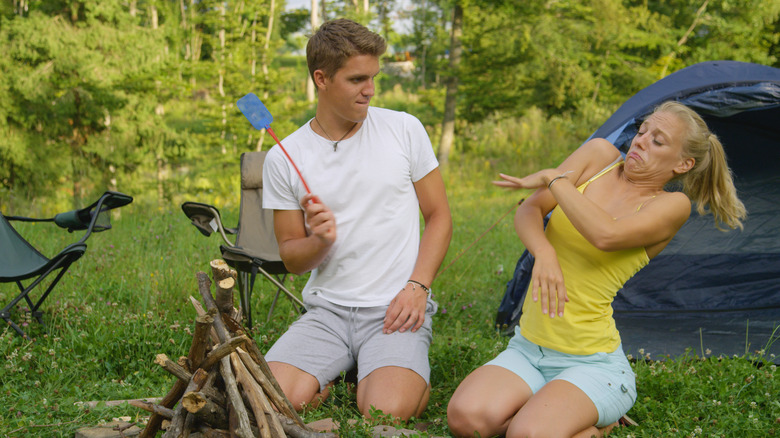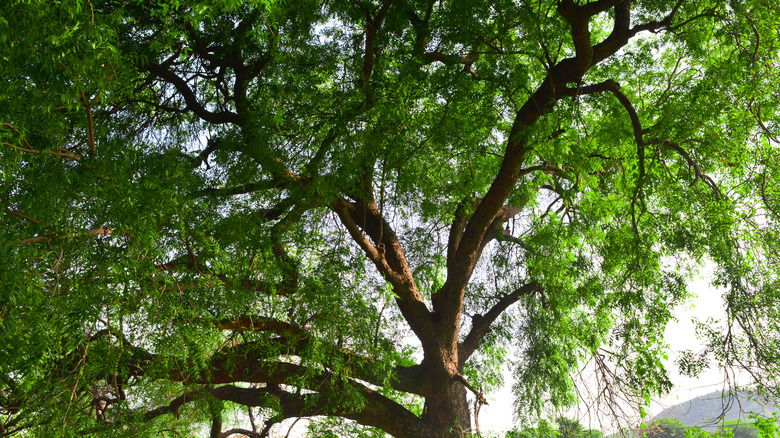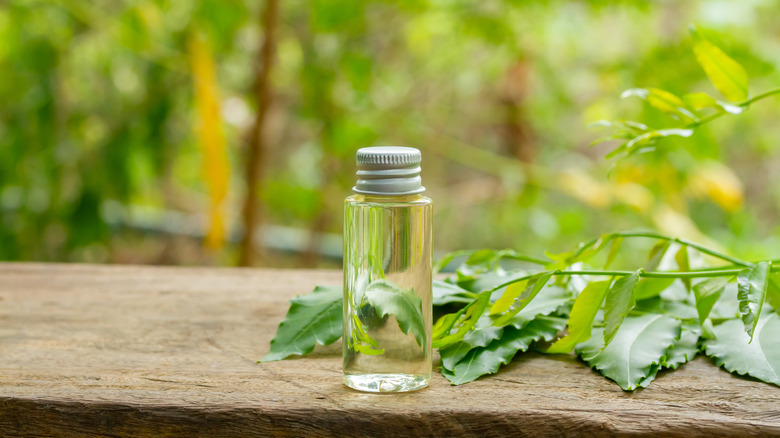Do Neem Trees Repel Mosquitoes? What You Should Know
Mosquitos are a pest that make summers less enjoyable. Nothing is worse than trying to enjoy the outdoors, a meal al fresco, or a moment relaxing in the fresh air when mosquitos are constantly buzzing around trying to get a taste. Dealing with their swollen bites afterward often makes people not want to go outside in the first place. Plenty of natural and manufactured solutions have been created to keep mosquitos away from your body and a large area like a backyard. Products made from the neem tree appear to act as both a mosquito repellent and a mosquito killer.
Products deriving from the neem tree, like neem oil, are often used as a pesticide to repel bugs naturally, particularly for houseplants. Neem oil is especially popular for keeping common pests from destroying and eating the leaves of houseplants by killing adult insects and larvae. Neem oil is made by opening the seeds and pressing the oil out by hand or with a mechanical press. Extracts can also be taken from the bark and leaves of the tree.
The main component of neem oil, azadirachtin, inhibits mosquito reproduction while affecting their larval and mature forms, a 2012 study explains. This means you can keep away fully-grown mosquitos, get rid of the young, and prevent them from reproducing the next generation. The oil derived from the neem tree seems to be the best defense against mosquitos, but we're not so sure if planting the tree itself has the same effect.
Neem oil is a powerful repellent
The neem tree is promising in its ability to repel and kill mosquitos, but there is a caveat. There doesn't seem to be any research supporting the idea that the tree alone is effective in keeping mosquitos away from the area. Male mosquitos feed on plant and flower nectar, while mosquito larvae feed on microorganisms in the water where they develop. Because mosquitos don't feed on the leaves or bark of trees, planting a ton of neem trees won't necessarily keep your backyard mosquito-free.
However, this doesn't make neem completely useless for keeping mosquitos away from your home and you. As mentioned, neem oil, derived from the seeds of a neem tree, can be incredibly useful. When mosquitos are treated with neem products, their feeding, growth, and molting process can stop. It can even kill larvae and adult mosquitos, prevent eggs from hatching, and repel them in high concentrations.
What is ideal about neem oil compared to other insecticides is that it isn't toxic to humans, pets, or beneficial pollinators since it must be consumed in order to work. So, you can use this in your backyard or on your person without worrying about how it will affect kids, your dogs, or bees and butterflies. Planting a neem tree won't prevent mosquitos in itself. But you can plant one and use its seeds to create a powerful mosquito repellent.
How to use neem oil to repel mosquitos
You can either make neem oil from the seeds of neem trees you plant in your yard or purchase neem oil products. To make a mosquito repellent, you have to combine neem oil with a carrier oil, like coconut oil, along with boiled water and vodka or rubbing alcohol in a spray bottle. However, when spraying, you want to avoid getting it in the eyes and mouth. For some people, neem oil can irritate the skin. Be sure to use cold-pressed neem oil and do a small patch test before using it on the rest of your body.
Neem can also be burned to get rid of mosquitos in your yard. Mixing a little neem oil into kerosene and burning it can add some protection from mosquitos. You can burn kerosene in a lamp while on a patio or deck. Burning neem leaves also seems to have the ability to repel mosquitoes. This can be a good option if you want to sit outside in the evenings or dine al fresco.
Target mosquitos in the larval stage before they even have a chance to feed. Mixing 30mg/L of neem oil with water over a 15-day period can kill mosquito larvae. This can be used in places where water gathers in a backyard, like puddles or plant trays. Be cautious of using neem oil in a pond with fish or aquatic animals, though, because it is moderately toxic to them.


